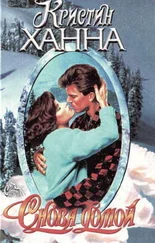“What do you mean?”
“For years, I’ve been fighting to make the rich pay their workers a living wage. I hate the inequity between the haves and the have-nots. I’ve been beaten and gone to prison for it. I’ve seen my comrades beaten, but tonight … when I saw you get hit…”
“What?”
“I thought … it’s not worth that.” He looked at her. “You’ve unbalanced me, Elsa.”
Elsa felt a sense of connection but didn’t know what to do with it, how to reach for him without humiliating herself. “I’m not myself around you, either,” was all she could think of to say.
He reached for her hand, held it.
The silence became awkward. He seemed to be waiting for her to say something, but what?
“There’s blood on your face and in your hair. Maybe you’d like to bathe before I take you back to your cabin. So the kids don’t see you like this.”
He helped her out of bed and steadied her as they walked into the small bathroom. Jack turned on the water in the porcelain bathtub, and then left her alone.
She undressed and stepped into the bath. With a sigh, she slid down into the hot water.
It relaxed her as nothing had in a long time. She washed her hair and body and felt rejuvenated.
But all the while, she was thinking of Jack.
Do you know how beautiful you are? She had never forgotten him saying those remarkable words, and now, he’d claimed to be unbalanced by her. Certainly, she was equally undone by him.
She stepped out of the tub and dried off, then wrapped the towel around her naked body and reached down for her ragged dress.
She stopped.
When she put that dress back on, she would be Elsa again.
She didn’t want that. At least she didn’t want to be the Elsa who stayed silent and accepted less and thought it her due. She’d rather reach for love and fail than never reach at all.
She turned the door handle slowly.
Even as she opened the door, she couldn’t quite believe she was doing this: she, who had ached for her husband’s touch for more than a dozen years but never once had the courage to reach for him, was going to walk out of this bathroom wearing only a towel.
It felt like the most courageous act of her life. She opened the door and walked into the bedroom.
Jack stood against the wall, arms crossed. When he saw her, he uncrossed his arms and walked toward her.
She dropped the towel, trying not to be ashamed of her scrawny body.
He stopped, then moved closer, said her name softly.
Elsa couldn’t believe the look in his eyes, but it was there. Desire. For her.
“Are you sure?” he asked, touching a lock of her hair, lifting it from her bare shoulder.
“I’m sure,” she said.
He took her hand and led her to the bed. She reached for the lamp, to turn it off. He stopped her, said, “Don’t,” in a rough voice. “I want to see you, Elsa.”
He threw his shirt and undershirt aside, kicked off his pants, and took her into his arms.
“Tell me what you want,” he murmured, his lips on hers.
He was asking for words she didn’t know, answers she didn’t have.
“Maybe you want me to kiss you here? Or here?”
“Oh, my God,” she said, and he laughed, kissing her again. His touch was magic, created a need she could neither control nor deny, made her desperate for more.
His hands were all over her, touching her with an intimacy she’d never imagined. The world disappeared, spiraled down to nothing except her desire and her need. No one had ever known her like this; he showed her the power of her own body, the beauty of her need. She dared with him all the things she’d always dreamed of. Relief came in waves; she felt ethereal, bodiless, at one with the air in the room. Floating. When she finally came back to herself—and that was what it felt like, becoming corporeal again after being nothing but need—she opened her eyes.
Jack lay on his side, staring at her.
She leaned boldly forward, kissed his lips, his temple. Somewhere in all of it, she realized she was crying.
“Don’t cry, my love,” he whispered, drawing her into his arms, holding her close. “There’s more where that came from. I promise you. This is just the beginning.”
My love.
“YOU ARE GOING TO wear a groove in the floor,” Natalia said, exhaling smoke.
Loreda stopped pacing. “It’s been two hours. Maybe she is dead.”
Ant shot up. “You think she’s dead?”
Loreda shook her head. Stupid. “No, Antsy. I don’t.”
“She’ll be back,” Natalia said. “Jack will see that she is returned.”
Loreda heard footsteps outside.
“Ant,” she said harshly, “come over here.”
He darted to her side, pressed up against her hip. She put a hand on his shoulder protectively.
Natalia got to her feet, stood in front of them as the door opened.
Jack and Mom walked in.
“Mommy!” Ant hurled himself at their mother.
“Whoa,” Mom said. “Slow down, buddy. I’m fine.” She leaned down and kissed the top of his head.
Jack said, “She should sleep now.” He helped Mom over to bed and got her settled in.
Ant immediately climbed up onto the foot of her bed and curled up like a puppy.
Loreda, Natalia, and Jack moved toward the door.
“Is she really okay?” Loreda asked.
“Yes,” he answered. “A nasty blow to the back of the head, but it will take more than that to slow your mother down. She’s a warrior.”
“It’s dangerous,” Loreda said, realizing for the first time how true those words were. Everyone had told her, but she hadn’t truly understood until tonight. They were risking everything to strike. Not just their jobs. It could go really badly.
“You see now,” Jack said. “A fight like this isn’t romantic. I was in San Francisco when the National Guard went after strikers with bayonets.”
“People died that day,” Natalia said. “Strikers. They called it Bloody Thursday.”
“We have to fight them, though,” Loreda said. “With whatever we have. Like when Mom took the baseball bat into the hospital to get aspirin for Jean.”
“Yeah,” Jack said, looking grim. “We do.”
THIRTY-FOUR
On the morning of the sixth, just before dawn, Elsa and the children climbed into one of the waiting Welty trucks.
The workers were quiet, subdued. People were reluctant to make eye contact. Elsa didn’t know if that meant they were with the strike or against it, but they all knew about it. Strike talk was everywhere. Careful words, spoken in dark corners. Everyone who worked in the valley knew a strike was happening today. Which meant the growers knew.
“I want you and Ant always in my sight,” Elsa said as the truck pulled up in front of the cotton field. Jack’s truck was parked in the middle of the road; he, Natalia, and several of their comrades waited for the strikers, held picket signs. The gate to the field was open.
“Fair pay! Fair pay! Fair pay!” Jack chanted as the workers climbed down from the truck.
Several cars and trucks appeared on the road behind Jack and Natalia, drove slowly forward. In minutes, Jack and his comrades would be caught between the strikers in front of them and the growers behind them, hemmed in on either side by fenced cotton fields.
The workers stopped en mass, stood clustered together, facing the Communists.
The first car stopped behind Jack’s truck. Three men got out; each one held a rifle.
A truck stopped beside it. Two more men jumped onto the road.
A third truck rolled into place and Mr. Welty stepped out, holding a shotgun. He walked forward, stopped about three feet behind Jack, and faced the strikers. “Wages are lowering today to seventy-five cents for a hundred pounds of cotton,” Welty said. “If you don’t take the wage and pick, there are plenty who will.”
Читать дальше












